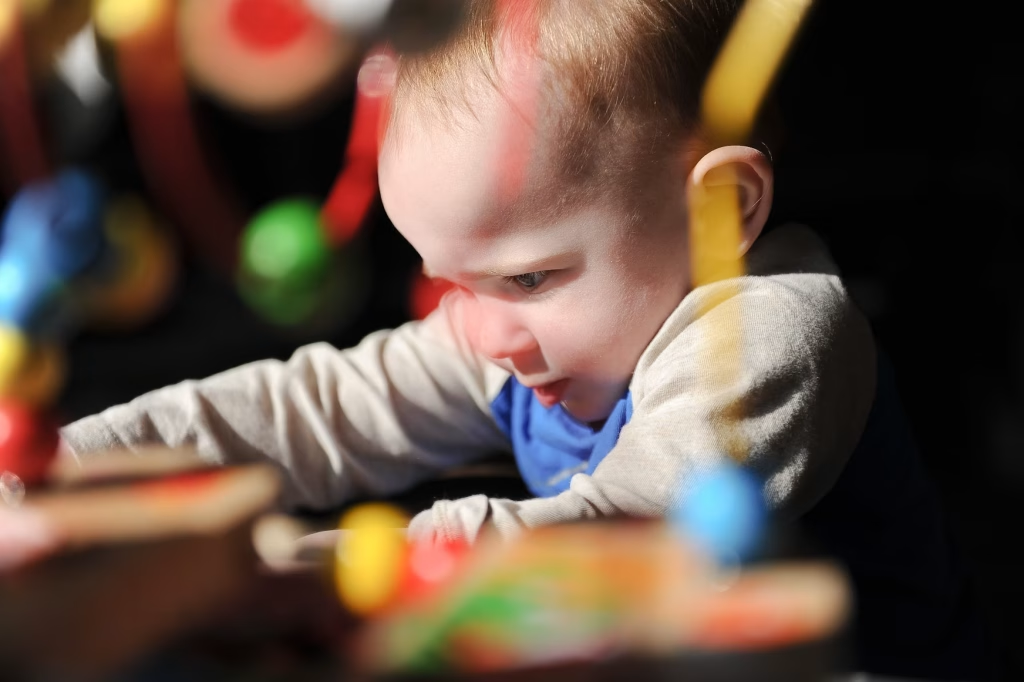
When your toddler’s mid-meltdown at a restaurant or fussy during a grocery run, handing over the iPad may feel like a parenting life-saver. It’s fast, it’s quiet, and it gives you five merciful minutes to breathe. But have you ever wondered if it’s really that different from soothing them with a cookie or a bag of chips?
More experts are drawing a connection between screen time and junk food, especially when it comes to toddler development. Let’s unpack why these comparisons are cropping up—and what mindful choices might look like in your everyday routine.
Both Can Cause Long-Term Harm
Just as too much junk food can lead to obesity, early screen dependence may affect a child’s mental and social development. Studies show that excessive screen time can contribute to anxiety, depression, and lowered emotional regulation in kids, concerns that map closely to physical harm caused by frequent unhealthy snacking.
According to OSF HealthCare, too much screen exposure can hinder a toddler’s ability to engage naturally with peers, making it harder for them to develop empathy and self-control. Similarly, a diet rooted in sugary snacks instead of protein and fiber can impact concentration, sleep, and overall mood. While neither iPads nor cookies are inherently “bad,” overuse of either chips away at a child’s long-term well-being.
It Can Delay Physical and Social Development
Your toddler’s brain and body are in a critical growth window, and both screens and junk food can interfere with that momentum. Research shows a concerning link between increased screen time and developmental delays in fine motor, personal, and social skills. That’s not unlike how poor nutrition can rob children of the fuel they need for physical growth and cognitive advancement. Hands-on play and active family interaction are essential building blocks at this stage. Simply put, passive screen watching can’t replace the deep learning that comes with real-world exploration and connection.
Habit Formation Starts Early
Whether it’s watching cartoons during breakfast or munching on sugary snacks after nap time, routines form much faster than we think. Unfortunately, repetitive exposure to either screens or unhealthy food can establish habits that are hard to undo later. According to Lucie’s List, building that dependency on screens during toddler years may set the tone for more sedentary, less interactive behavior as your child grows. The same goes for junk food—once it becomes a crutch for regulating emotions or providing comfort, we risk creating long-term challenges with self-control and balanced nutrition. This doesn’t mean total elimination, but awareness is key in preventing over-reliance.
They Can Fuel Behavioral Challenges
We’ve all witnessed the sugar crash: a burst of hyperactivity followed by a full-on meltdown. Believe it or not, screens have a similar impact. Research from Mayo Clinic links screen overuse to tantrums, irritability, sleep disruption, and escalating struggles with self-regulation.
The reason? Screens (like sweets) overstimulate the brain’s reward systems, making it harder for young children to manage disappointment or boredom. That’s why emotional outbursts after screen time aren’t just coincidental—they’re often a signal that the sensory input was too much, too fast.

Cognitive Development Can Suffer
A toddler’s early years are rich with potential for language acquisition, critical thinking, and creativity—but only if those skills are actively nurtured. According to Boston Children’s Hospital, excess screen exposure can reduce quality caregiver interaction, stunting executive function and problem-solving skills. Junk food has a similar effect when relied upon in place of brain-nourishing meals; it simply doesn’t offer the nutrients needed for optimal mental performance and mood stability. In other words, neither screens nor empty-calorie snacks feed those foundational abilities that shape a child’s future. Hands-on play, responsive conversation, and movement remain the gold standards for strengthening young minds.
Thoughtful Choices, Not Perfection
Let’s be honest—sometimes, the iPad really is the only way you’re getting through that 45-minute appointment or keeping dinner from burning. And yes, a bowl of ice cream now and then is part of a joyful, balanced life. What matters most is how consistent these choices become.
Being mindful about limiting screen time for toddlers (just like we monitor sugar intake) gives them space to thrive in healthier ways. It’s not about guilt—it’s about guidance, balance, and choosing what supports your child’s long-term growth rather than just the short-term ease.
What Do You Think?
Have you noticed similar effects between screens and snacks with your little one? We’d love to hear how your family balances tech, treats, and toddler tantrums—drop a note in the comments and connect with others navigating this too.
Read More:

Samantha Warren is a holistic marketing strategist with 8+ years of experience partnering with startups, Fortune 500 companies, and everything in between. With an entrepreneurial mindset, she excels at shaping brand narratives through data-driven, creative content. When she’s not working, Samantha loves to travel and draws inspiration from her trips to Thailand, Spain, Costa Rica, and beyond.